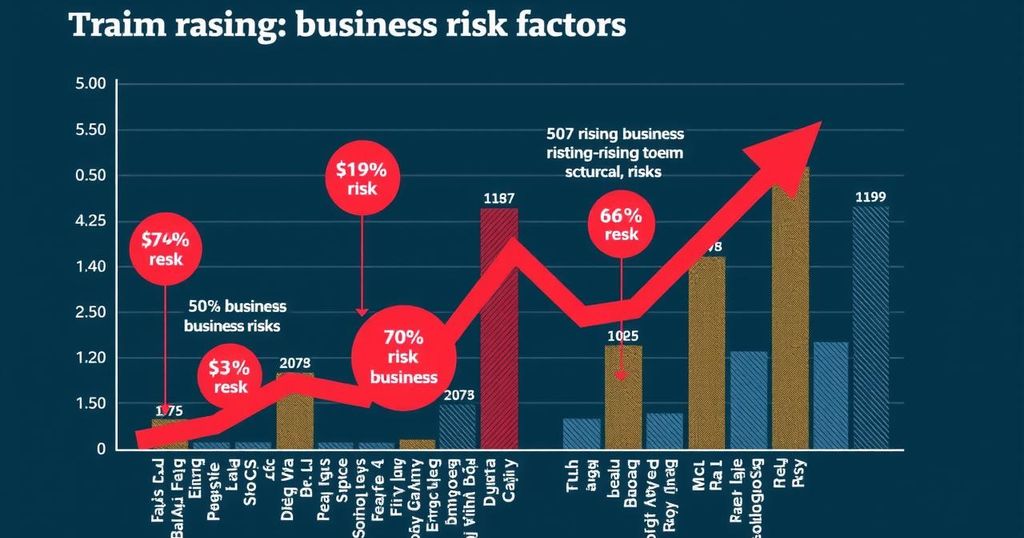Businesses are increasingly facing risks from climate change, with recent studies indicating a significant rise in extreme weather events impacting operations. The World Economic Forum’s survey shows climate-related risks are becoming more pronounced alongside traditional economic concerns. Leaders emphasize the need for proactive risk management strategies and disaster preparedness, suggesting a focus on sustainability can help mitigate these growing challenges.
A recent report emphasizes the increasing urgency for businesses to brace for the impacts of climate change. While economic factors and talent shortages are recognized as significant risks by executives, the rising global temperatures and their consequent extreme weather events are quickly becoming pressing concerns. The World Economic Forum’s Executive Opinion Survey reveals that among G20 business leaders, inflation ranks third in risks faced, trailing behind poverty and inequality, while climate-related extreme weather emerges as a highlight.
Chris Lay, Chief Executive Officer of Marsh McLennan UK, indicated, “Equally concerning are the implications of new technologies, which, while offering tremendous potential for growth and innovation, present exposures that require careful management. Businesses need to shore up their defenses against these new and emerging risks to stay resilient and adaptable to future challenges.”
The increasing frequency and severity of extreme weather, influenced by hotter temperatures, have dire implications ranging across various sectors, affecting individuals, wildlife, and even homeowners’ insurance rates. Countries such as Brazil, Germany, Indonesia, and the United States have already experienced substantial impacts from extreme weather in the past year. While larger corporations may be adept at managing risks, small businesses are often less resilient and may be forced to cease operations following disasters.
Peter Giger, Chief Risk Officer at Zurich Insurance Group, underscored the necessity of expanding risk management strategies to encompass non-economic factors, particularly climate change impacts, stating, “By adopting a proactive approach, businesses can enhance their resilience while positioning themselves for sustainable growth.”
Mityne Lewis, who faced flooding at her day care facility in Chicago, expresses the unpredictability of these risks. She emphasized that investment in disaster preparedness is vital, with studies suggesting that every dollar spent on preparation can save thirteen dollars in damages and related expenses. On a broader scale, to combat pollution, primarily derived from fossil fuel consumption, individuals are encouraged to adopt sustainable habits, which, when collectively implemented, can significantly contribute to mitigating climate change.
In conclusion, businesses must adapt promptly to the implications of climate change by reevaluating their risk management strategies and preparing for unpredictable extreme weather events. Only through proactive measures can they ensure resilience, protect operations, and foster sustainable growth in the face of growing environmental challenges.
The article discusses the escalating risks faced by businesses due to climate change, highlighting insights from a significant survey conducted by the World Economic Forum. It outlines the shifts in perception regarding risk management amidst rising global temperatures and extreme weather events, emphasizing the necessity for businesses to pursue preparation over reaction in order to thrive in an unpredictable environment. Additionally, it touches upon the role of individuals in tackling climate-related concerns through sustainable practices at home.
In summary, as climate change continues to intensify, businesses must prioritize risk management that includes environmental factors. The World Economic Forum’s survey underscores the emerging prominence of climate risks among business leaders globally. By adopting proactive measures, enhancing preparedness, and embracing sustainability, businesses can not only withstand the impacts of extreme weather events but also contribute to a more resilient economy.
Original Source: www.thecooldown.com






